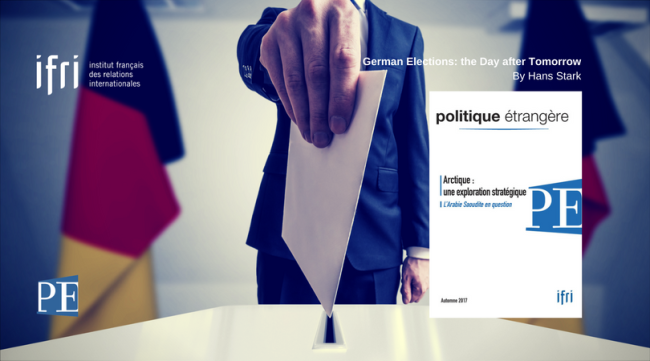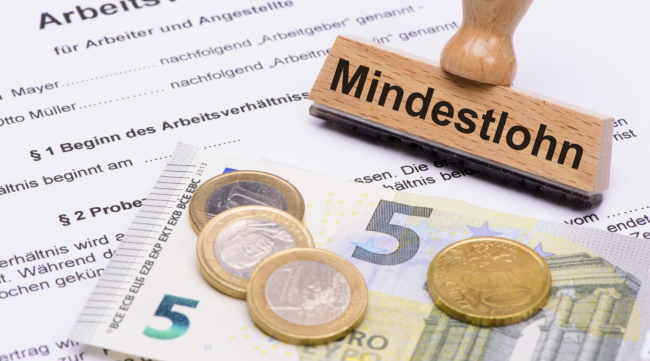Germany
An in-depth analysis of Germany's trajectory through its foreign and European policies, its relations with France, its economy and its domestic politics, offering a perspective on the country and its role in the world.
Related Subjects



Germany Hesitant over Macron’s Vision
The French president’s speech on ambitious EU reform met politely raised eyebrows in Germany as Berlin struggles to build a new government. Any other day, a two-hour plea from the French president for a stronger European Union would have sent politicians in Germany rushing for the nearest mic. But just a few days after its own election, Berlin is distracted.
German Elections: the Day after Tomorrow
Angela Merkel is gaining thanks to her international standing and the weakness of her Social-Democrat opponent.
The German landscape of foundations and think tanks.
The number of crises we face is rising, due to failing states, wars and armed conflicts, poverty and lack of good governance in many countries. State and society are constantly confronted with new challenges. These crises occur simultaneously and at an ever faster pace.
Between aging and migrations: the difficult German equation
The decision of German Chancellor Angela Merkel to welcome over one million refugees in the years 2015 and 2016 had been interpreted by some to be a strategic choice to cope with the demographic problems that Germany is facing: the expected decline in the population, especially in its work force, as well an ageing population.
Alternative für Deutschland: right-wing populism or extreme right?
An interview with Fabian Virchow, professor at the University of Applied Sciences in Düsseldorf and head of the extreme right Program at Hans-Böckler Foundation. M. Virchow came to Paris in April to speak at a conference on the German parti AfD -Alternative for Germany- organised by the Study Committee on French German relations.
Alternative für Deutschland: What risks for Germany?
The AfD - Alternative for Germany – founded in opposition to Angela Merkel’s policy line of supporting southern European countries, has quickly become part of the political family of "right-wing populism" in Europe, with whom it cultivates close ties.

Germany: with AfD the extreme right will enter the Bundestag
The Netherlands and France are not the only founding member states of the European Union that see extreme right party’s on the rise. The “Alternative für Deutschland” gathers 10 percent of voting intentions in Germany – especially in the East. Some of its leaders don’t hesitate to use vocabulary banished since 1945.

AfD and National Front converge ahead of elections
The right-wing spiral of Germany’s anti-EU Alternative für Deutschland party (AfD) has brought it shoulder to shoulder with France’s National Front (NF). The two parties see eye-to-eye on a number of issues, including Russia.


Sweden brings back military conscription amid Baltic tensions
The Swedish government has decided to reintroduce military conscription - a move backed by the country's MPs. Why is this happening? And how will it work? How does it impact regional security? And which other European countries have conscription?
The introduction of the minimum wage in Germany: a first assessment
Germany introduced a minimum wage on January 1st, 2015 – a first in a country that had hitherto left it to the social partners to agree on salaries. This introduction came after vivid debates between those who fought against ever deeper inequalities and those who defended the nation’s competitiveness.
Support independent French research
Ifri, a foundation recognized as being of public utility, relies largely on private donors – companies and individuals – to guarantee its sustainability and intellectual independence. Through their funding, donors help maintain the Institute's position among the world's leading think tanks. By benefiting from an internationally recognized network and expertise, donors refine their understanding of geopolitical risk and its consequences on global politics and the economy. In 2024, Ifri will support more than 70 French and foreign companies and organizations.















